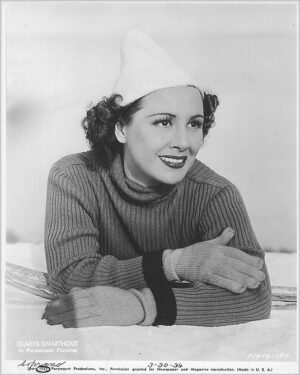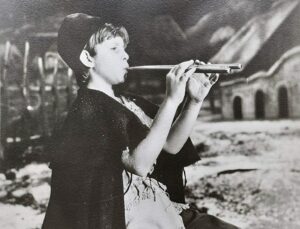The popular contralto Ernestine Schumann-Heink had just sung Clytemnestra in the world premiere of Richard Strauss’s “Elektra” in Dresden in 1909. “A fearful din” was what she called an event she did not remember fondly. So when asked about repeating the part of the debauched queen in New York, she said: “If Mr. Hammerstein were to put on the opera tomorrow and offer me $3,000 a night I would say no. And $3,000 is a great deal of money and I have many children” (seven, not counting a stepson).
Three thousand dollars is still a heap of change and I have many cats, but I’m not sure it would be enough to get me to sit through another performance of the new “Elektra” at the Metropolitan Opera. With its psychotic characters and churning score, “Elektra” usually makes for an entertaining night out. But this short, intermission-less opera has rarely seemed longer than it did at Lincoln Center last week. Hildegard Behrens has done some memorable singing at the Met, most particularly as Brünnhilde a few years ago. But it wouldn’t be too difficult to re-create the effect of her Elektra by staying home and drilling a hole in your head. . . .
Elektra is an enormously difficult role to sing, even without some Ginger Rogers dancing thrown in at the end. After her first, long monologue, “Alone, alone,” she never again leaves the stage – something I remembered with mounting dread as Ms. Behrens cracked and then soldiered on with what sounded like a private improvisation based glancingly on Strauss’s score but without the high notes. I guess she was sick, though not announced as such. It was no house secret that the soprano had not sung at the rehearsals, creating some suspense in the process. Maybe James Levine was forewarned, since he didn’t fall off the podium when she began this peculiar odyssey into opera history by giving one of the more bizarre performances by a major artist in living memory.
With her lower jaw firmly imbedded in her chest in that strange vocal technique that no longer serves her well, Ms. Behrens seemed to find the floor more interesting than her colleagues. But Mr. Schenk probably didn’t help matters by leaving crucial relationships unexplored. Even Elektra’s confrontation with Clytemnestra failed to terrify, though Leonie Rysanek is always a presence even in a role meant for a contralto, not a soprano with an age-reduced range. Dressed in a kaftan loaded with jewelry, she looked a lot like Louise Nevelson at a gallery [first night]. Hers was an unusually fragile, nearly human portrayal, rather different from the typical weaving, chest-clutching hag. It was interesting. But in an already pallid staging, it just faded into the scenery, which was dully lit anyhow by Gil Wechsler.
There was one nice effect. Orestes arrived in a beam of light, as he set about bringing a new day to this gloomy world. Bernd Weikl sang sturdily, though he is not a singer who is compelling while standing still, something Orestes does much of. The others in the cast were fine. James King has enough voice leftover from his heldentenor days to sing a bright, convincing Aegisthus. And there was much to admire in Deborah Voigt, who sang Chrysothemis in an ugly costume that emphasized every bulge. When the diminutive Ms. Behrens clutched at one of her legs it was hard not to think of little Freia and big Fafner. But if one could not possibly imagine Ms. Voigt as Elektra’s weak-kneed sister, at least one could not fail to hear her. Her bountiful soprano cut through the orchestra, with plenty remaining for those power surges that make Strauss so exciting with the right voices and the right conductor.
Mr. Levine was often just such a conductor, urging the orchestra along to the end we were all waiting for. Perhaps he could do us an even greater favor and call up Eva Marton. The imperious Hungarian left the company in a snit a few years ago because she wanted to sing roles the Met didn’t want to hear. But there is surely common ground and a big vacuum to be filled. Meanwhile, you can hear Ms. Marton in full throttle on the 1991 EMI release with Cheryl Studer’s pipsqueak Chrysothemis.
On this day in 1964 the Jule Styne–Bob Merrill musical Funny Girl opened on Broadway.
Birthday anniversaries of soprano Viorica Ursuleac (1894), conductor André Cluytens (1905) and bass Arnold van Mill (1921).


